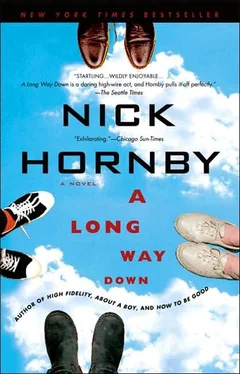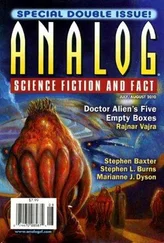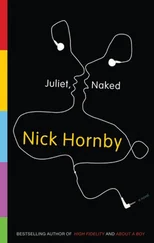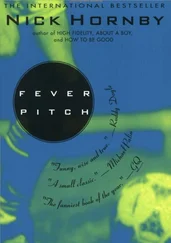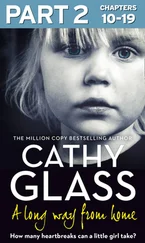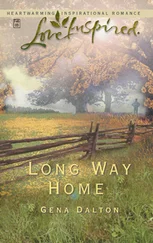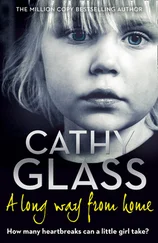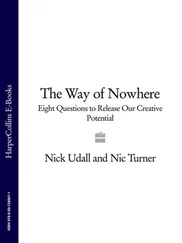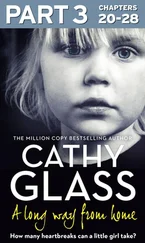“Some of the patients are difficult,” I said, in a stupid whiny voice. “Poor pay. Night shifts. Diddums.”
“Sean,” Stephen said to his partner. “I’m going to wait upstairs. This guy’s throwing the rattle out of the pram.”
“You just wait and listen to what I have to say. I did you the courtesy of listening to you banging on about what a national hero you are. Now you listen to me.”
I don’t think he minded staying where he was for a couple of minutes. This kind of sensationally bad behaviour elicited a great deal of fascination, I could see that, and I hope I don’t seem immodest when I say that my celebrity, or what remained of it, was crucial to the success of the spectacle: usually, television personalities only behave badly in nightclubs, when surrounded by other television personalities, so my decision to cut loose when sober to a male nurse, in a Starbucks basement, was bold—possibly even groundbreaking. And it wasn’t as if Stephen could really take it personally, just as he couldn’t have taken it personally if I’d decided to crap on his shoes. The outward manifestations of an inner combustion are never very directed.
“I hate people like you,” I said. “You wheel a disabled kid around for a bit and you want a medal. And how hard is it, really?”
At this point, I regret to say, I took the handles of Matty’s wheelchair and pushed him up and down. And it suddenly seemed like an excellent idea to put my hand on my hip while I was doing it, in order to suggest that pushing disabled people around in their wheelchairs was an effeminate activity.
“Look at Daddy, Mummy,” one of my daughters (and I’m sorry to say that I don’t know which one) yelled with delight. “He’s funny, isn’t he?”
“There,” I said to Penny. “How’s that? Do I look more attractive to you again now?”
Penny was staring at me as if I were indeed crapping on Stephen’s shoe, a look that answered the question.
“Hey, everybody,” I yelled, although I had already attracted all the attention I could possibly wish for. “Aren’t I great? Aren’t I great? You think this is hard, Blondie? I’ll tell you what’s hard, Sunny Jim. Hard is…”
But here I dried up. As it turned out, there were no examples of difficulty in my professional life readily to hand. And the difficulties I had experienced recently all stemmed from sleeping with an underage girl, which meant that they weren’t much good for eliciting sympathy.
“Hard is when…” I just needed something with which to finish the sentence. Anything would do, even something I hadn’t experienced directly. Childbirth? Tournament-level chess? But nothing came.
“Have you finished, mate?” Stephen asked.
I nodded, trying somehow to convey in the gesture that I was too angry and disgusted to continue. And then I took the only option apparently available to me, and followed Jess and JJ out of the door.
Jess was always walking out of everywhere, so I didn’t mind her going too much. But when JJ walked out, and then Martin… Well, I started to feel a bit annoyed, to tell you the honest truth. It seemed rude, when everyone had gone to all that trouble to turn up. And Martin was so peculiar, pushing Matty up and down and asking everyone if he looked attractive. Why would anyone think he looked attractive? He didn’t look attractive at all. He looked mad. To be fair to JJ, he’d taken his guests with him when he went—he hadn’t left them behind in the coffee bar, the way Jess and Martin had done. But later on I found out that he’d taken them all outside to have a fight with them, so it was difficult to decide whether he was being rude or not. On the one hand, he was with them, but on the other hand, he was with them because he wanted to beat them up. I think that’s probably still rude, but not as rude as the others.
The people left behind stood around for a little while, the nurses and Jess’s parents and Martin’s friends and family, and then when we all began to realize that no one was coming back, not even JJ and his friends, no one was quite sure what to do.
“Is that it, do you think?” said Jess’s father. “I mean, I don’t want to… I don’t wish to appear unsympathetic. And I know Jess took a lot of trouble organizing this. But, well… There’s no one really left, is there? Would you like us to stay, Maureen? Is there anything we can usefully achieve as a unit? Because obviously, if there was… I mean, what do you think Jess was hoping for? Perhaps we can help her to achieve it in absentia ?”
I knew what Jess was hoping for. She was hoping that her mum and dad would come and make everything better, in the way mums and dads are supposed to. I used to have that dream, a long time ago, when I was first on my own with Matty, and I think it’s a dream that everyone has. Everyone whose life has gone badly wrong, anyway.
So I told Jess’s father that I thought Jess just wanted people to understand better, and that I was sorry if that wasn’t what had happened.
“It’s those bloody earrings,” he said, and so I asked about the earrings, and he told me the story.
“Were they special to her?” I said.
“To Jen? Or to Jess?”
“To Jen.”
“I don’t really know,” he said.
“They were her favourites,” said Mrs Crichton. She had a strange face. She smiled the whole time we were speaking, but it was as though she’d only discovered smiling that afternoon—she didn’t have the sort of face that looked as though it were very used to being cheerful. The lines she had were the sort you’d get from being angry about stolen earrings, and her mouth was very thin and tight.
“She came back for them,” I said. I don’t know why I said it, and I don’t know if it was true or not. But it felt like the right thing to say. It felt true in that way.
“Who did?” she said. Her face looked different now. It was having to do things it wasn’t used to doing, because she suddenly looked so desperate to hear what I had to say. I don’t think she was used to listening properly. I liked making her face do something new, and that was why I went on, partly. I felt like I was in charge of a lawnmower, cutting a path into places where the grass was overgrown.
“Jen. If she loved her earrings, then she probably came back for them. You know what girls of that age are like.”
“God,” said Mr Crichton. “I’d never thought of that.”
“Me neither. But… that makes so much sense. Because, do you remember, Chris? That’s when we lost a couple of other things, too. That was when that money went missing.”
I didn’t have the same feeling about the money. I could see that there might have been another explanation for that.
“And I said at the time that I thought there were a couple of books gone, do you remember? And we know Jess didn’t take those.”
And they both laughed, then, as if they liked Jess, and liked it that she’d rather jump off a tower-block than read a book.
I could see and feel why it would make a difference to them, this idea that Jen had come into the house for her earrings. It would mean that she had disappeared, gone to Texas or Scotland or Notting Hill Gate, rather than that she’d been killed, or she’d killed herself. It meant that they could think about where she was, imagine her life now. They could wonder about whether she’d had a baby that they’d never seen and might never see, or got a job that they’d never hear about. It meant that in their heads they could carry on being ordinary parents. It’s what I was doing, when I bought Matty his posters and his tapes—I was being an ordinary mother in my head, just for a moment.
You could wreck it all for them in a second, if you chose to, rip enormous great big holes in the story, because what did it add up to, really? Jen could have come back because she wanted to die wearing her earrings. She might not have come back at all. And she was still gone, whether she came back for five minutes or not. Oh, but I know what you need to keep yourself going. That probably sounds funny, considering why we were all there in that coffee bar in the first place. But the fact is that so far I have kept myself going, even if I had to climb the stairs to the roof of Toppers’ House to do it. Sometimes you just need to give things a tiny little jiggle. You just need to think that perhaps someone might have helped themselves to their own earrings, and your part of the world looks like somewhere you could live in for a while.
Читать дальше
